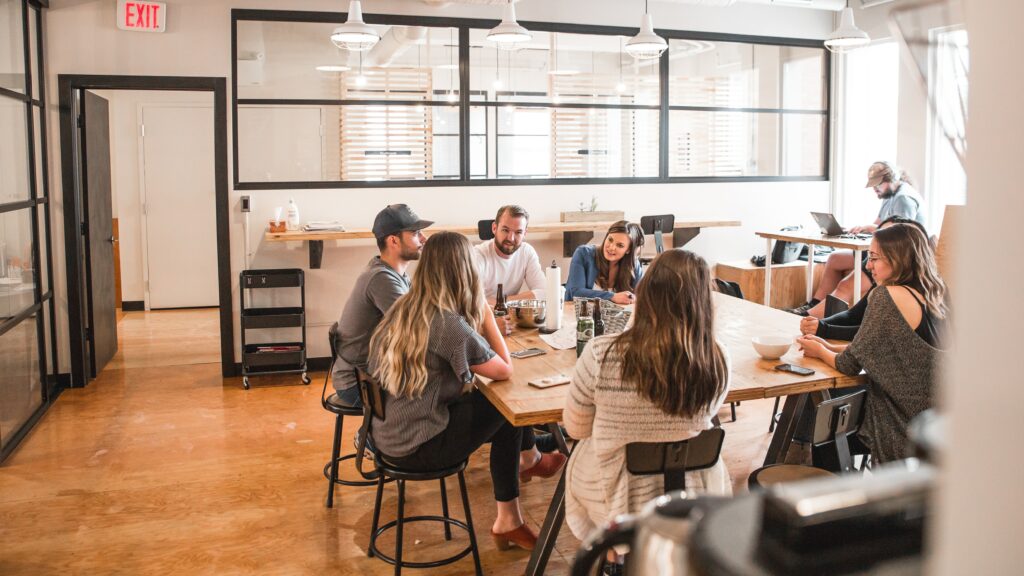On July 20th, WLAB hosted a focus group featuring ~20 changemakers in the fashion and garment industry. Convened by Aamir, former COO of Lane Crowford, the focus group aims to bring together changemakers to talk about the life cycle of the industry. Ultimately, they wanted to create an ecosystem with different players in the industry.
Prominent players in the focus group included Redress, Hula, Jeeves HK, Billie System, CN Logistics, Retykle, HKRITA, OnTheList, and Fashion Clinic. Each of them have expertise either in extending life, second life, or end of life. They also have capabilities in recycling, redesigning, repairing, garment cleaning, logistics, and more.
Players working on extending the life of garments
By extending life, we mean that a piece of clothing can be worn longer, or be transformed into something else so its life is extended. Some ways to extend the life of garments is to take better care of them.
Taking care of garments is what Jeeves strives to do by offering professional dry cleaning and valeting service for high quality clothings. While transforming garments is what Fashion Clinic does. Led by Kay, Fashion Clinic has partnered with Jeeves. Customers can now deposit their pre-loved items at Jeeves and have Kay redesign their clothes. What is redesign? It is magical and transformational. For example, you can turn jeans into jackets, or suits into jackets. Possibilities are endless! One challenge Jeeves was facing was clients were always in a rush when depositing dry cleaning. Jeeves then pivoted the redesign service by making it appointment only. Added benefits working with Kay is that Kay has more extensive knowledge with repairs and redesign.
One challenge that Jeeves is facing for its concierge service is that the majority of staff are over 65. It is difficult to find new blood to do the skilled work. It was also difficult for him to be the sole caretaker of clients. Another initiative of Jeeves is to reduce plastic waste, as there is lots of plastic packaging for those clothes.
Players working on giving a second life to garments
Hula is a sustainable fashion community where members can consign their designer luxury items. Those items are sold up to 95% off their retail price. Their service includes sorting items, repricing, adding descriptions to items, and putting it for sale online. They also use AI technology to authenticate items. One challenge they face is that many processes are done manually, and clients have very diverse needs.
Retykle is a resale platform for designer luxury children’s clothing at a discounted price from retail. A challenge they face is that Hong Kong is a small market where customers have apprehension toward second-hand. Sarah admitted that Hong Kong is not a ready-state market. They are trying to replicate the model to launch in Singapore in September this year. In Hong Kong, they work with 20 charity partners, but COVID-19 has made it difficult because charities stopped accepting, or are accepting less donations.
Redress helps reduce textile waste with their various education and community initiatives. They collect around 2 tons of clothes a month but 20% of them are not usable, either because they are not clothes that charities accept (e.g., school uniforms), or they are not in good conditions. They started talking to a Japanese process to downcycle waste from garments. However, it has been difficult because those wastes are too diverse and hard to be put in reasonable categories. Similar to Retykle, lots of charities are not accepting donations due to COVID-19, so Redress had to look for more storage space. That is where CN Logistics comes into play. CN Logistics now helps to collect clothes at different locations, and also helps store clothes in their warehouse. After partnering with CN Logistics, the garment sorting process for Redress is more efficient, and the life of their volunteers is also made easier. Redress also partners with Hula by selling some of the clothes from Hula at a much lower price point. Simultaneously, Redress provides some higher-end products to Hula for resale. Their tagline this year is “Give Second-hand a Chance.” They are planning to create a map of all second-hand shops in Hong Kong to encourage customers to shop second-hand. They are also about to launch a survey to identify drivers and barriers to shopping second-hand.
Players working the end of life of garments
The Billie System is a waterless system to recycle textile waste. The end product is yarn that can be sold to companies, donated, or made into merchandise. To make merchandise, virgin yarn would be added to increase the lifetime of the product. Recently, they have produced bags made from bedsheets provided by a hotel group plus yarn from recycled textiles. The hotel group has asked for the bags, so the process has helped close the loop. Ronna added that they want more people to be educated, because mindset change is very important.
Building an ecosystem
To create synergy around the sustainability of the fashion industry, an ecosystem was suggested to be created. Potentially, it would have both B2C and B2B elements. The group would reconvene in a few weeks to talk about more concrete action items. We are very excited that the group was able to co-create at WLAB!


